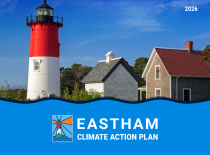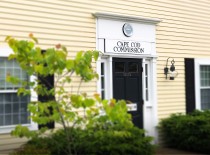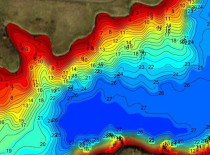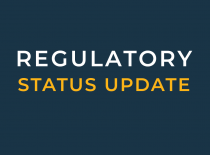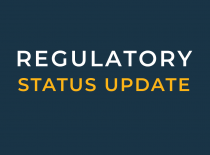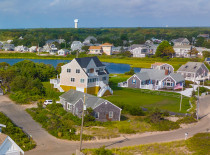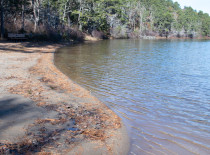Category: Newsletter
The Cape Cod Commission and the town of Eastham have released the draft Eastham Climate Action Plan for a 30-day public comment period. Created with input from many community members, including full- and part-time residents, business owners, local organizations, municipal staff, and other partners, the plan provides a clear framework to guide local climate action through defined goals, strategies, and implementation measure
In October 2025, the Cape Cod Regional Transit Authority (CCRTA) promoted John Kennedy to Administrator, filling the position left by the late Tom Cahir, who served for 16 years. Read more to learn about his new role and approach for leading the region's transit organization.
The Cape Cod Commission is pleased to welcome two new staff members and an AmeriCorps service member to our team. Read more to learn about Planner II Jasmine Olins, Regulatory Planner Ellen Carlson, and AmeriCorps member Ciara Chagnon.
The Cape Cod Commission is exploring whether a Transportation Management Association (TMA) could help address the region’s growing mobility challenges, including seasonal congestion and workforce transportation needs, as well as the anticipated impacts of the upcoming replacement of the Sagamore and Bourne bridges.
With major infrastructure projects approaching and travel patterns continuing to evolve, regional partners are considering new tools that can improve mobility, support economic development, and better coordinate services across Cape Cod.
Across the region, efforts to collect and compile pond data are expanding. One of the most significant data gaps in fully assessing pond health is bathymetry, the measurement of the depth and shape of a water body’s bottom, essentially, an underwater topographic map. Bathymetric data describe how deep a pond is at various locations, the contours of the pond floor, and changes in depth that influence how water moves and mixes. To address this need, the Cape Cod Commission is initiating a project to survey bathymetry in approximately 30 ponds across the region.
The Cape Cod Commission is a pre-qualified planning service provider through the Massachusetts Broadband Institute's (MBI) Municipal Digital Equity Planning Program for the 15 towns of Barnstable County. Through this program, the Commission assisted the towns of Bourne, Sandwich, Orleans, Falmouth, and Barnstable in developing municipal digital equity plans, roadmaps for ensuring that all residents have access to the devices, connectivity, and skills needed to participate fully in today's digital society.
MBI invited towns with completed digital equity plans to apply for one-time grants of up to $100,000 through the Municipal Digital Equity Implementation Program to carry out projects identified during the planning process. All five participating towns received awards and are now moving forward with implementation.
A status on projects currently under review by the Cape Cod Commission.
This Regulatory Update provides a status on projects currently under review by the Cape Cod Commission. Visit www.capecodcommission.org/regulatory for a full overview of our Regulatory program and answers to frequently asked questions.
The Executive Office of Housing and Livable Communities is working to finalize the regulations for implementing the Seasonal Communities Act. Cape Cod Commission staff recently submitted comments on the draft regulations, recommending clear alignment between definitions of primary residence, greater specificity around how municipalities should approach zoning for undersized lots, and a more consistent minimum occupancy requirement that reflects the intent of year-round housing.
For the past three years, the Cape Cod Commission and the Association to Preserve Cape Cod have collaborated on the Cape Cod Regional Pond Monitoring Program (RPMP), an effort to collect consistent data from 50 representative ponds across the region. Since the spring of 2023, monitors, including hundreds of volunteers, have made nearly 1,000 visits to ponds, collecting almost 3,000 samples. Now, at the end of its initial three-year run, the program has brought new insight, new capabilities, and a new level of community involvement to understanding pond health across Cape Cod. Now, the Commission is seeking to expand the program and continue it for years to come.
